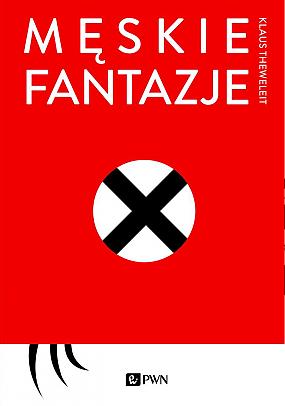Men, fascism and desire
Open seminar on reading Klaus Theweleit's "Male fantasies"
Museum of Modern Art in Warsaw invites you to a series of open seminars based on "Male Fantasies" by Klaus Theweleit.
Nearly forty years after the first edition of Klaus Theweleit's Male Fantasies came out in Germany, the cult “psychoanalysis of white terror” is being published in Polish. While many respected voices worriedly consider the dangers coming about from the rebirth of right wing extremism in Europe, it is with great urgency that we must ask ourselves if we are able to face the contemporary nature of fascism. The fascism that may not appear dressed in black or brown shirts and that, contrary to the mitigating theories, is not necessarily only associated with political totalitarianism.
Theweleit's book induces anxiety by presenting fascism as something rooted deeply in the psycho-physiological constitution of the modern man, or rather the modern male, the soldier-male who goes to war with desire, supposedly embodied by femininity.
To understand a fascist, we need to let go of ideology and political systems and turn our attention to his specific psychological and physiological reality. We need to ask, not even “why the masses desired fascism”, but in fact, how the fascist man desires – or does not desire. Klaus Theweleit attempts to answer this question in his thousand page long work. He thoroughly studies historical documents (letters, biographies, novels and other testimonies of the life of men in the Weimar Republic), but also makes use of various theoretical devices, mainly psychoanalytical, as well as some that today would be associated with feminism and gender studies. But those theories are not considered orthodox or canonical. Male Fantasies were, for instance, one of the first serious applications of Deleuze and Guattari's schizoanalysis.
Our goal is to read Theweleit's book together and discuss the proposed understanding of fascism as a phenomenon. Alongside extracts from Male Fantasies we will suggest reading fragments of other works that highlight specific issues which will be covered during our meetings.
Each meeting will to some extent be an independent event, open to take part in by anyone, but we do hope to have attendants interested in active participation in the whole program (please inquire at zapisy@artmuseum.pl, writing “Male Fantasies” in the subject line of your message).
The ordinary fascist
Wednesday, October 21, 6 p.m.
Subjects: how to think about fascism? - is it enough to analyze “totalitarian ideologies”? - micro-fascisms in everyday life
Contexts: B. Brecht, Deleuze and Guattari's schizoanalysis, H. Arendt
Fascism, modernity, capitalism
Wednesday, December 16, p.m.
Subjects: the capitalist and (lower) middle class background of fascism – the forming of manhood and the status of women – so-called socialism in National Socialism
Contexts: N. Elias, the Frankfurt School, A. Sohn-Rethel
What do men fantasize about (in the past, the recent past and today)?
Thursday, December 10, 6 p.m.
Meeting with Klaus Theweleit, based around his two books – Male Fantasies and Das Lachen der Täter: Breivik u.a. [“The Laughter of Perpetrators: Breivik and others”]
Did masses ever exist?
Wednesday, January 20, 6 p.m.
Subjects: so-called mass society – the revolutionary masses – the mass figure in fascism (fear) – mass and serried ranks
Contexts: E. Canetti, E. Jünger, M. Focault
Male societies
Wednesday, February 24, 6 p.m.
Subjects: what is the purpose of male organizations? - homoeroticism and antisexualism in male societies – the role of violence and war – war between men and war on femininity
Contexts: S. Freud, H. Blüher
Second semester (exact dates to be established)
Who are the not-yet-fully-born and where do they come from?
March
Subjects: the not-yet-fully-born figure as a prefiguration of the fascist soldier-male – the family and social background of the “incomplete birth”
Contexts: F. Kafka, A. Artaud, psychoanalysis
Psychoanalysis – but what kind?
April
Subjects: psychoanalysis applied to fascism – the family circle and libido in the social field
Contexts: W. Reich, T.W. Adomo, G. Deleuze
The German character?
May
Subjects: the German-Prussian road to modernity – the Weimar Republic compared to other European countries in the interwar period – social democratic alliances – Freikorps
Contexts: N. Elias, Historikerstreit
Summary
June
